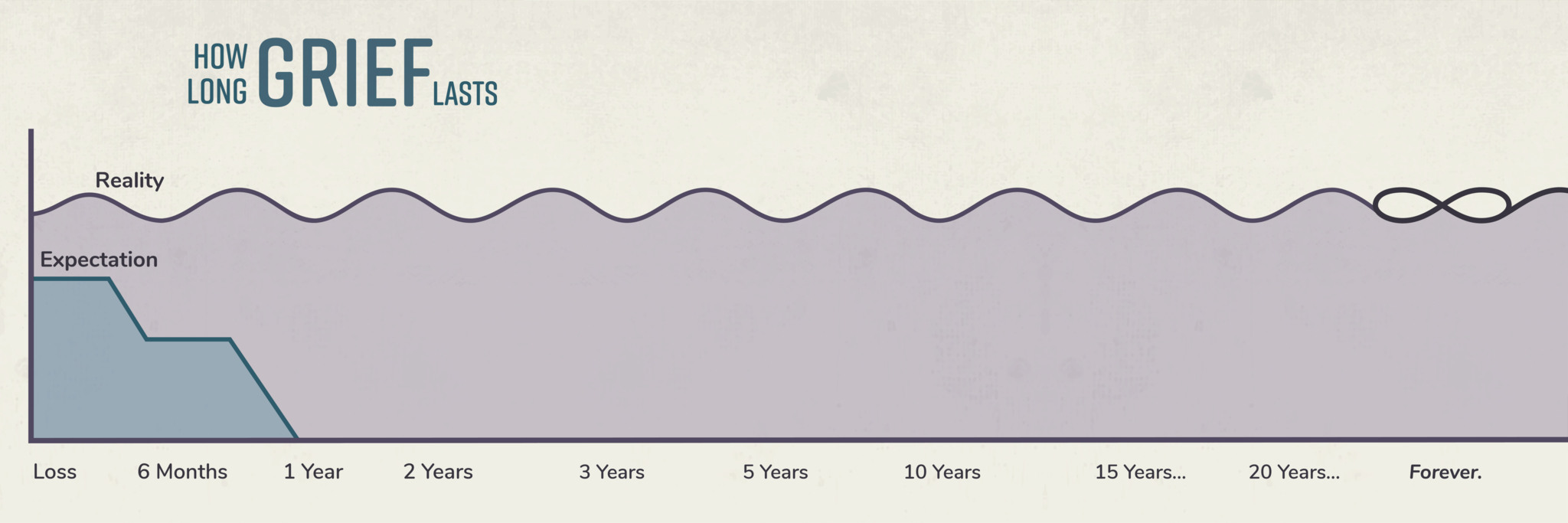Grief has no timeline
When we grieve, we can’t control the process. We can’t control how long it takes or how many times it starts over.
A common misconception about grief is that there is a linear timeline that one must pass through in order to come to terms with the death of a loved one. Generally, pain is tempered as time passes, but there is no timeline with grief.

While we may eventually adapt to life without our loved ones, grief never fully goes away.
So, we have this idea that grief should be over and done with within 6-8 weeks. So, if you are still sad six months after your mom died, you're failing. For some people, grief should be over by the time the funeral is over. Right? Depending on how close you were to the impact zone—and impact zone, I mean your daily personal involvement with the person who's died—the further you get out from the center of that circle the less tolerance you have for somebody's emotions.
If you have a life to go back to it can seem like, “You should be good by now.” But, for those whose intimate, daily lives are affected by the death of somebody, you're not even out of the initial fog at six weeks or six months. You have to live without that person on a day-to-day basis for the rest of this life. That’s going to take more than six weeks or six months.
And, again, because we don’t talk about this—we don’t talk about the lived reality of grief—even grieving people think, “It’s been six months, why am I still so sad? What’s wrong with me?” Nothing’s wrong with you. You’re human.